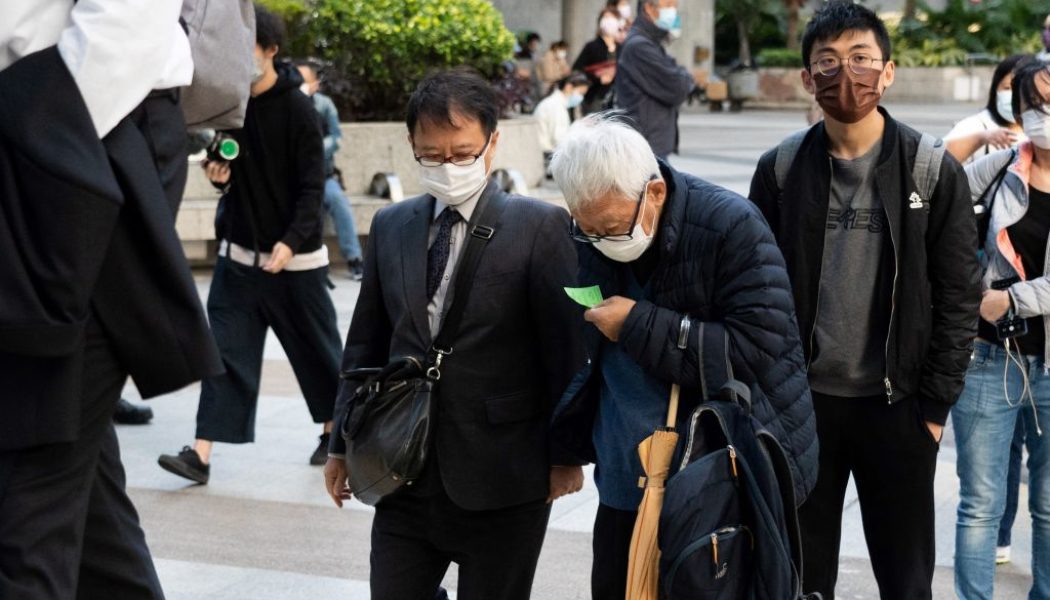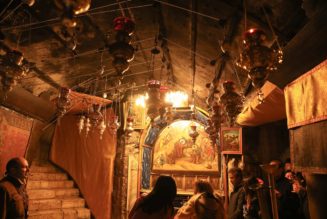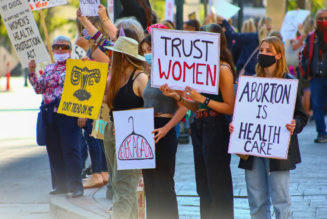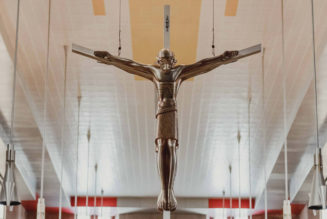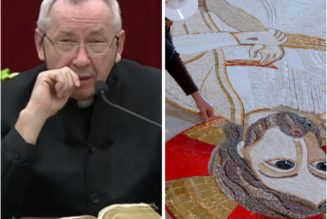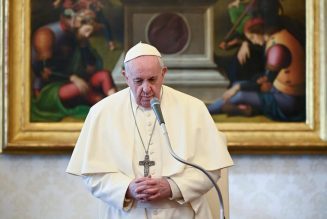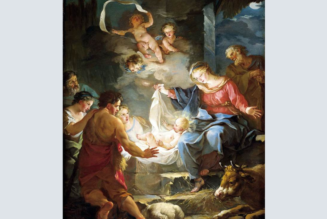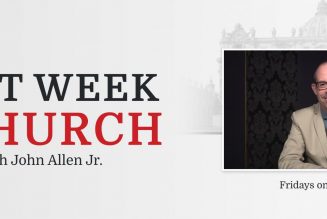In the 10 days since Cardinal Joseph Zen was arrested in Hong Kong, interrogated for hours and then released on bail, pending charges, there have been a variety of reactions — on the global scale and my own.
Who Stands With Cardinal Zen?
The Holy See Press Office noted the arrest of Cardinal Zen with “extreme attention.” The secretary of state, Cardinal Pietro Parolin, pronounced himself “displeased” but was grateful that Cardinal Zen was “treated well” and hoped that the displeasing event did not disrupt the Vatican’s ongoing “dialogue” with China.
Meanwhile, U.S. Speaker of the House Nancy Pelosi wrote a fierce defense of Cardinal Zen, pronouncing herself more than displeased. Pelosi also noted that Cardinal Zen — whom she praised as “a critical voice of conscience, an embodiment of moral fortitude” — “urged the Vatican to reject an agreement that would give the People’s Republic of China say over the ordination of bishops,” the very agreement that Cardinal Parolin labors so determinedly to defend.
How strange that the speaker of the House, so often at odds with Catholic teaching, is a more ardent defender of Cardinal Zen than the Holy See’s secretary of state. The former does not regard his arrest and interrogation as being “treated well.”
Pelosi noted that in February 2020 she received Cardinal Zen at the Capitol in Washington to present him with a prize recognizing him as a “champion of Chinese democracy.”
Just six months later, in September 2020, Cardinal Zen traveled to Rome hoping to speak with Pope Francis about the situation in China. The Holy Father refused to see him.
The senior Asian cardinal in Rome, Cardinal Luis Antonio Tagle of the Philippines, prefect of the Congregation for the Evangelization of Peoples, has said nothing significant about the arrest of a cardinal in the very mission territories that he is responsible for.
Meanwhile, one Asian cardinal who lives in an authoritarian dictatorship managed to be more bold. The president of the Federation of Asian Bishops’ conferences, Cardinal Charles Maung Bo of Yangon, Myanmar, spoke of his “profound concern about the situation for human rights and threats to religious freedom in Hong Kong,” saying that Cardinal Zen’s arrest reveals that it is now “a police state.”
Given the customary silence of the Holy See on repression in China, Cardinal Bo has emerged as a singular voice of truth in the region.
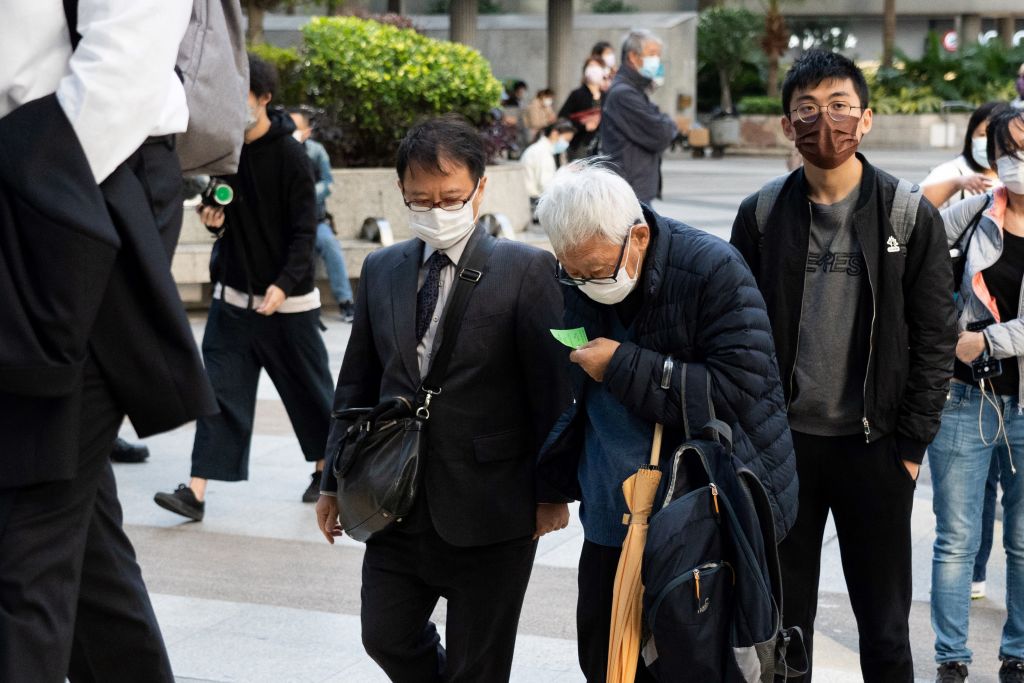
25 Tumultuous Years
Twenty-five years ago, when Cardinal Joseph Zen baptized Jimmy Lai, the handover of Hong Kong to China from Britain was at hand; the “one-country-two-systems” guarantee of democracy and human rights was to guarantee the British legacy of liberty for 50 years.
Twenty-five years later, the promises Beijing made have been betrayed, and the communist screws are being tightened on Hong Kong. Lai is a successful entrepreneur who ran two major newspapers in Hong Kong. He is a convert to the Catholic faith. He was thrown in prison last year for “unlawful protests” and “colluding with foreign forces” — new “crimes” under Beijing’s national security law applicable to Hong Kong. His newspaper, Apple Daily, was shuttered by the regime.
Lai uses his time in prison to read the classics of the faith. Cardinal Zen joked last year that when he visited the man he baptized in 1997, he had to brush up on his theology first!
Lai marked the 25th anniversary of his baptism in prison. Last week, he had to deal with the real threat that his spiritual father may join him.
Jimmy Lai’s name — a heroic layman on the peripheries — is never mentioned in official Vatican statements. Yet he is not forgotten. He was honored at last year’s National Catholic Prayer Breakfast in Washington, and just last Saturday, Lai was awarded an honorary degree in abstentia by The Catholic University of America. His son received the honor in his place.
St. John Fisher and the Witness of the Martyrs
In February 2013, I had the blessing of hosting Cardinal Zen on his visit to Canada. He addressed our annual St. John Fisher Dinner at the Newman House chaplaincy at Queen’s University in Kingston, Ontario, as well as meeting with the Chinese community in Toronto.
I had invited him — without having any prior relationship — because I admired him greatly. Somewhat to my surprise, he came. For a retired octogenarian, the trip from Hong Kong was long and tiring. Why did he accept?
He explained at the dinner that it was foolish for him to travel so far at his age; and, after all, he had to rearrange the classes he was now teaching to seminarians. But he “had to come” when he saw the invitation. “Anything to honor St. John Fisher,” he said, meant that “he had to accept.”
Cardinal Zen was my guest in Kingston in 2013 because he believes the Church needs more men like St. John Fisher. King Henry VIII kept Cardinal John Fisher in the Tower of London; now, the Chinese regime threatens Cardinal Zen with prison.
At a lecture given this past Wednesday in Rome, papal biographer George Weigel argued that in dealing with tyrannical regimes, the Holy See ought to lift up, not freeze out, the voices of the martyr-confessors. Weigel fears that the failed policies of the past have returned.
“The Ostpolitik that guided Vatican diplomacy in Central and Eastern Europe between 1963 and the election of John Paul II did not disrespect the persecuted local Churches behind the Iron Curtain,” Weigel said, “but it did tend to regard their intransigence as an obstacle to diplomatic accommodation between the Holy See and communist regimes.”
“John Paul II had long ‘read’ the reality of the martyr-confessors in the underground Churches behind the Iron Curtain differently,” Weigel continued. “To his mind, the witness of these brave men and women, living and dead, helped strengthen a religiously informed cultural resistance to communism, because it embodied in a unique way the moral pressure that could and should be exerted on communist regimes.”
Moral pressure is really the only “power” that the Church can exert on communist China. Will it now, after the Vatican-China secret agreement has manifestly failed on all fronts, be prompted to do so by the arrest of Cardinal Zen?
Join Our Telegram Group : Salvation & Prosperity
